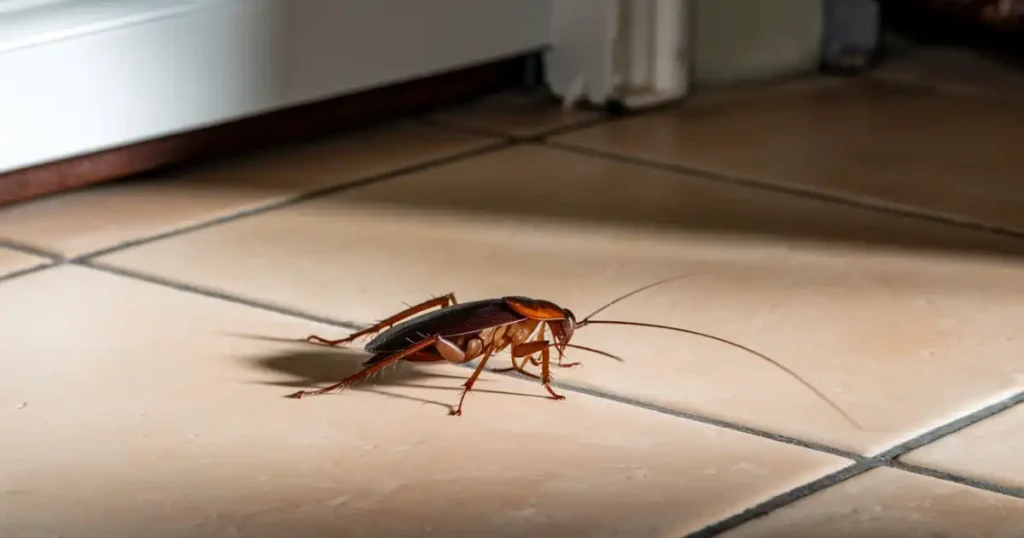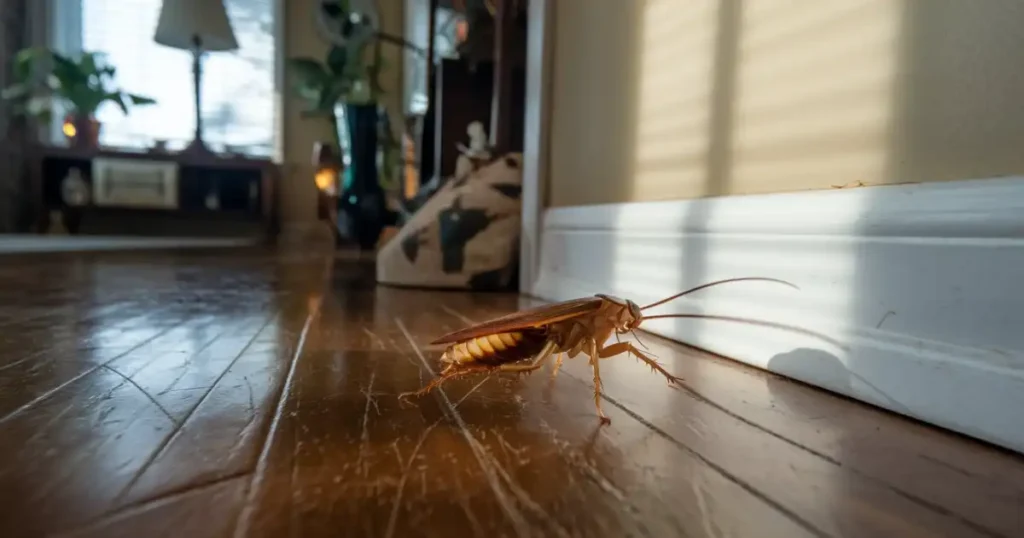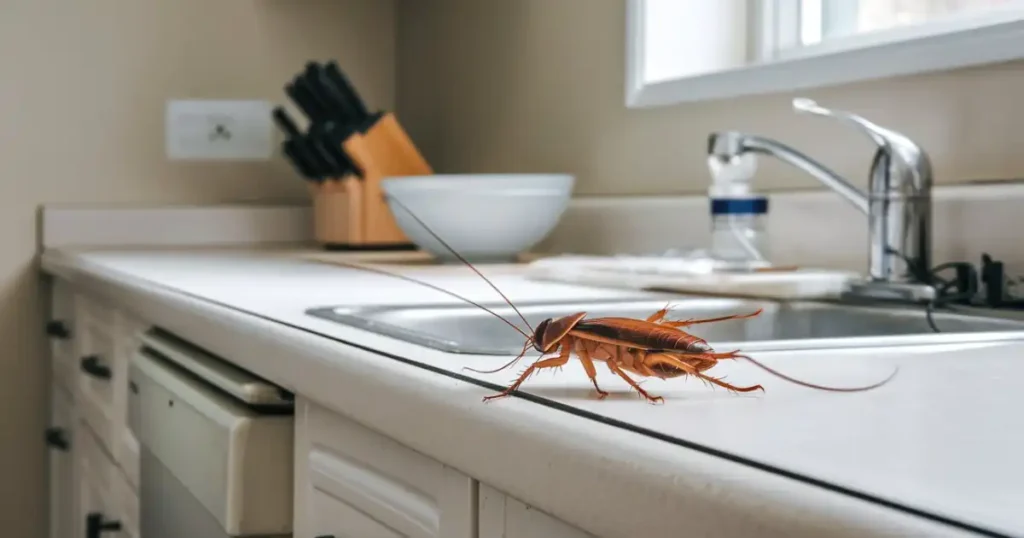
Few messengers arrive with worse PR than the cockroach. One flash of chitin on the kitchen tile and we jump a foot in the air, then launch a cleaning spree that would impress a drill sergeant. And yet—if you can breathe past the shudder—the cockroach spiritual meaning is a remarkably rich as a symbol: a creature that thrives in the margins, survives what others can’t, and reminds us to face what we’d rather not see. In other words, a masterclass in resilience, shadow work, and renewal—delivered by a houseguest from under the fridge.
This guide blends experience (urban ecology and home hygiene practices), expertise (comparative symbolism across traditions), authority (clear distinctions between folklore and facts), and trust (practical steps you can actually use).

Cockroaches have endured for millions of years by doing two unglamorous things well: adapting quickly and using what’s available. Spiritually, that’s permission to survive imperfectly. You don’t need a pristine plan—just a workable one. The roach arrives as an uninvited pep talk: endure, improvise, keep going. It’s grit, not glitter.
Roaches prefer crevices, cavities, and the backsides of things. Their appearance is often a nudge toward what you’re not looking at: ignored errands, unspoken tensions, that corner of the closet (and the psyche) where “later” goes to nap. Antítesis clara: we want overhead lighting and inspirational quotes; the roach insists that truth lives in the corners.
Cockroaches molt—they shed exoskeletons to grow. On the inner plane, that’s the invitation to peel off a habit, story, or allegiance that no longer fits. The symbolism isn’t romantic; it’s practical: change is itchy and necessary.
A roach’s persistence can be a commendation (“stay the course”) or a caution (“you’re repeating what harms you”). The message depends on context. Are you holding firm—or just stuck?
It depends. Symbols aren’t traffic lights; they’re mirrors.

Across the Americas, Europe, Africa, and Asia, humble household insects tend to symbolize the tenacity of life and the necessity of upkeep. Urban folklore often casts cockroaches as trickster-adjacent: survivors who win by patience and timing. Rather than flatten diverse traditions into one tidy story, we can responsibly say this: the roach is a threshold creature—appearing where neglect accumulates and asking for honest maintenance, both physical and spiritual.
From a psychological standpoint, roaches can embody stress you’ve sidelined. The sudden dart of a roach maps onto the body like a pop quiz: You’ve left something unattended. People often report upticks during hectic seasons, moves, or caregiving crunches—times when attention thins. That doesn’t make the symbolism fake; it makes it useful. The body speaks in startle; the house speaks in corners.
Step 1: Clear the corners (both kinds).
Step 2: Name the avoided thing.
One sentence, written by hand: “I have been avoiding ______.” Now shrink it to a 20-minute action. Do that today. Momentum is medicine.
Step 3: Molt intentionally.
Choose one habit or script to shed for seven days. Replace it with a tiny upgrade (two-minute tidy at night; inbox triage window; five-minute stretch between tasks). Change the exoskeleton, not the species.
Step 4: Protect the perimeter.
Step 5: Keep a small ritual.
A nightly 5-minute “threshold reset”: wipe counters, sweep the entry, breathe three slow breaths at the door, say: “Only what serves may enter.” Spiritual hygiene is just… hygiene with a spine.
Trust cue: The above blends spiritual tradition with public-health basics. It’s not either/or. It’s the adult answer: burn the sage and take out the trash.
Two possibilities:
If the problem persists, use sustainable pest methods (baits in sealed stations, targeted gels, professional help that prioritizes exclusion and sanitation). You’re not “failing spiritually” by calling a pro; you’re aligning action with intention.

Cockroaches are decomposers—they help return nutrients to systems. That doesn’t mean you must host them; it means we can drop the disgust-as-identity. Respect the role, set the boundary, keep the home.
1) Is a cockroach a sign of bad luck or protection?
It can symbolize both—that’s the paradox. For some, it’s a protector against complacency, urging resilience and honest maintenance. For others, it flags stagnant energy. Context decides: How’s your space? Your stress? Your routines?
2) What does it mean to dream of many cockroaches?
Often: overwhelm and avoidance—too many small tasks or emotions collecting in the dark. The remedy is bite-sized: list five tiny actions and do the easiest first. Spiritually, it’s a call to systemic simplification.
3) What’s the spiritual meaning of a dead cockroach at home?
Closure and reset. A cycle is ending—help it end well: clean thoroughly, air the room, and set a fresh intention for the space. If they keep appearing, look for a remaining gap—literal or emotional—that wants sealing.
The cockroach is an unpretty oracle. It doesn’t promise romance or riches; it offers something sturdier: endurance, candor, and the nerve to begin again. When it visits, you don’t have to like it. But you can listen—then mop. That’s grown-up magic: respect the sign, fix the leak, and make the night air smell like citrus and relief.
However, beyond the symbolic and psychological aspects, ensuring your home is free from unwanted pests is crucial for both your well-being and spiritual harmony. For effective and humane pest control solutions, Critter Stop stands out as a trusted partner.
With an outstanding reputation, high-quality work, and exceptional customer service, Critter Stop is the go-to choice for residential pest control needs. Don’t let cockroaches disrupt your peace—reach out us at (214) 234-2616 and reclaim the sanctuary of your home.
Visit our Critter Library and learn more about our furry friends